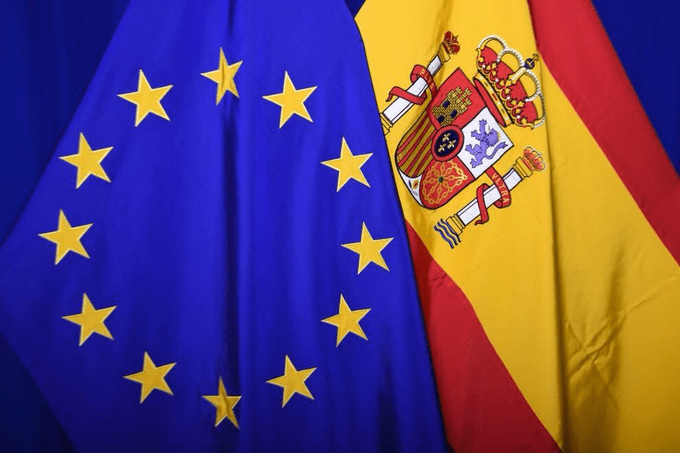The main decisions adopted by the Commission for Spain are presented below, grouped by policy area.
Internal Market, Industry, Entrepreneurship and SMEs
Commission urges BULGARIA, SPAIN and ROMANIA to comply with public procurement legislation
The European Commission has decided to pursue infringement proceedings by sending a letter of formal notice to Romania [INFR(2023)2114] and by issuing reasoned opinions concerning Bulgaria [INFR(2018)2268] and Spain [INFR(2021)2171] for non-compliance with public procurement legislation. Member States had to transpose the rules on public procurement and concession contracts (Directive 2014/23/EU, Directive 2014/24/EU and Directive 2014/25/EU) into national law by 18 April 2016. By requiring Member States to follow fair and transparent procedures, these Directives aim to open up public markets to real competition between companies across the EU and ensure the best value for money for public procurement. The Commission is contacting the countries on a number of issues, including restrictions on operators’ rights in the case of Romania and the exclusion of private hospitals from EU public procurement rules even if they are partly financed by public funds in the case of Bulgaria. The Spanish legislation does not respect, in particular, the scope of the Directives as regards the type of contracting authorities, contracts and modifications to contracts to be covered.
Bulgaria, Spain and Romania have two months from now to remedy the shortcomings identified by the Commission. In the absence of a satisfactory response, the Commission may decide to send a reasoned opinion to Romania and to refer Bulgaria and Spain to the EU Court of Justice.
Commission urges SPAIN and HUNGARY to comply with rules on motorway concession contracts
The European Commission has decided to pursue infringement proceedings by sending a letter of formal notice to Hungary [INFR(2024)4006] and an additional letter of formal notice to Spain [INFR(2021)4052] for failing to comply with the rules on motorway concession contracts. Both letters aim to ensure that EU rules on concessions, which provide for equal treatment of economic operators interested in participating in public procurement procedures and respect for the obligation of transparency, are respected. The Commission is addressing a number of issues related to these contracts. It considers that the 35-year Hungarian concession lacked transparency in the estimated value, did not transfer sufficient operating risk and was extended for an unduly long period without justification, in breach of EU law. Spain extended the duration of two motorway concessions without properly applying the tendering procedures, in breach of EU rules.
Spain and Hungary now have two months to respond to the Commission’s allegations, otherwise the Commission may decide to send them a reasoned opinion.

March infringement package: main decisions for Spain |
Justice
Commission urges BULGARIA, SPAIN and POLAND to correctly transpose EU rules on presumption of innocence and the right to be present at trial
The European Commission has decided to pursue infringement procedures by sending letters of formal notice to Spain [INFR(2024)2033] and Poland [INFR(2024)2034], as well as sending an additional letter of formal notice to Bulgaria [INFR(2023)2093] for failing to correctly transpose the Directive strengthening certain aspects of the presumption of innocence and the right to be present at trial in criminal proceedings [Directive (EU) 2016/343]. This Directive is one of six Directives adopted by the EU to create common minimum standards to ensure that the fair trial rights of suspects and defendants in criminal proceedings are sufficiently protected across the EU. The Commission considers that some of the national transposition measures notified by the three Member States do not meet the requirements of the Directive. The Commission sent a first letter of formal notice to Bulgaria in September 2023, but found additional problems with the Bulgarian transposition of the provisions concerning trials in absentia and the right to a retrial. As regards both Poland and Spain, the Commission found that the measures notified by these Member States do not correctly transpose the provisions of the Directive relating to public references to guilt, as well as those relating to the use of physical restraints when bringing suspects and accused persons before the courts or the public. Poland has not correctly transposed the conditions for the application of the burden of proof, the right to remain silent and the right not to testify against oneself, the requirements for trials in absentia, as well as the provision on the right to an effective remedy. In addition, under Polish law, persons suspected of having committed a criminal offence do not benefit from the rights of the Directive before they are informed by the competent authorities of their status as suspects or accused persons, which results in an incorrect transposition of the scope of the Directive. The Commission is therefore sending letters of formal notice to Spain and Poland and an additional letter of formal notice to Bulgaria, which now have two months to respond and remedy the shortcomings identified by the Commission. In the absence of a satisfactory response, the Commission may decide to issue a reasoned opinion.
Energy
Commission requests BELGIUM, DENMARK and SPAIN to fully transpose EU internal electricity market rules
The European Commission has today decided to send a reasoned opinion to Belgium [INFR(2022)2032], Denmark [INFR(2022)2102] and Spain [INFR(2022)2034] for failing to fully transpose EU rules for the internal electricity market set out in Directive (EU) 2019/944, amending Directive 2012/27/EU. The Directive defines fundamental rules concerning the organisation and functioning of the EU electricity sector in order to create integrated, competitive, consumer-focused, flexible, fair and transparent electricity markets throughout the EU.
The deadline for transposing the Directive into national law was 31 December 2020. The Commission sent letters of formal notice to Belgium and Spain in May 2022 and to Denmark in September 2022, after concluding that not all provisions of the Directive had been transposed into national law. After examining the replies of the Member States concerned, as well as the national transposition measures notified, the Commission considers that these Member States have not yet fully transposed the Directive.
The three Member States concerned now have two months to comply with the transposition obligation and notify the Commission; otherwise, the Commission may decide to refer the cases to the Court of Justice of the European Union.
Budget
Commission urges SPAIN to comply with rules on collection of traditional own resources
The European Commission has decided to pursue infringement proceedings by sending a letter of formal notice to Spain [INFR(2023)2192] for failing to collect traditional own resources (TOR) (as set out in the Council Regulation implementing the Own Resources Decision) on textiles from China released for free circulation in the EU between November 2011 and December 2012. The Spanish customs authorities accepted extremely low customs values, did not request a guarantee and did not verify the declared customs value until more than a year after the imports, in contravention of the commonly agreed process at EU level.
The Commission concludes that the measures taken by Spain in the context of imports from China were insufficient to protect the European budget.
The Commission will therefore send a letter of formal notice to Spain, which now has two months to respond and remedy the shortcomings identified by the Commission. In the absence of a satisfactory response, the Commission may decide to issue a reasoned opinion.
More information: European Commission







Leave a Reply